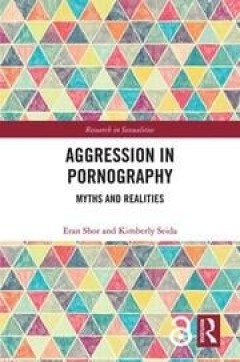Filter by

Making Mental Health : A Critical History
ABSTRACT Making Mental Health: A Critical History historicises mental health by examining the concept from the ‘madness’ of the late nineteenth century to the changing ideas about its contemporary concerns and status. It argues that a critical approach to the history of psychiatry and mental health shows them to constitute a dual clinical-political project that gathered pace over the cours…
- Edition
- -
- ISBN/ISSN
- 9780429351464
- Collation
- 186 p
- Series Title
- -
- Call Number
- -

The Digital Transformation of Labor : Automation, the Gig Economy and Welfare
ABSTRACT Through a series of studies, the overarching aim of this book is to investigate if and how the digitalization/digital transformation process causes (or may cause) the autonomy of various labor functions, and its impact in creating (or stymieing) various job opportunities on the labor market. This book also seeks to illuminate what actors/groups are mostly benefited by the digitalizati…
- Edition
- -
- ISBN/ISSN
- 9780429317866
- Collation
- 366 p
- Series Title
- -
- Call Number
- -

Publishing Sacrobosco’s De sphaera in Early Modern Europe
This open access volume focuses on the cultural background of the pivotal transformations of scientific knowledge in the early modern period. It investigates the rich edition history of Johannes de Sacrobosco’s Tractatus de sphaera, by far the most widely disseminated textbook on geocentric cosmology, from the unique standpoint of the many printers, publishers, and booksellers who…
- Edition
- 1
- ISBN/ISSN
- -
- Collation
- -
- Series Title
- -
- Call Number
- XIV, 492

Mobile ad hoc networks : current status and future trends
Guiding readers through the basics of these rapidly emerging networks to more advanced concepts and future expectations, this book examines the most pressing research issues in Mobile Ad hoc Networks (MANETs). Leading researchers, industry professionals, and academics provide an authoritative perspective of the state of the art in MANETs. The book includes surveys of recent publications that in…
- Edition
- -
- ISBN/ISSN
- 9780429192227
- Collation
- 538 p
- Series Title
- -
- Call Number
- 001 MOB

Bienen an der Hochschule
In diesem Open-Access-Buch werden verschiedene Erfahrungen vorgestellt, die im Bienenprojekt „BEEsy Mission“ der Hochschule Pforzheim gesammelt wurden. Zukünftigen Projektverantwortlichen wird eine Hilfestellung bei der institutionellen Etablierung und Haltung von Bienen gegeben.Das Buch befasst sich unter anderem mit den Fragestellungen und Herausforderungen, die im Projektkonzept berück…
- Edition
- 1
- ISBN/ISSN
- -
- Collation
- -
- Series Title
- essentials
- Call Number
- XIII, 38

Rights for Robots : Artificial Intelligence, Animal and Environmental Law
ABSTRACT Bringing a unique perspective to the burgeoning ethical and legal issues surrounding the presence of artificial intelligence in our daily lives, the book uses theory and practice on animal rights and the rights of nature to assess the status of robots. Through extensive philosophical and legal analyses, the book explores how rights can be applied to nonhuman entities. This task is …
- Edition
- -
- ISBN/ISSN
- 9780429288159
- Collation
- 190 p
- Series Title
- -
- Call Number
- -

The rise of autism: risk and resistance in the age of diagnosis
ABSTRACT The Open Access version of this book, available at https://www.taylorfrancis.com/books/e/9780429285912, has been made available under a Creative Commons Attribution-Non Commercial-No Derivatives 4.0 license. This innovative book addresses the question of why increasing numbers of people are being diagnosed with autism since the 1990s. Providing an engaging account of competing and …
- Edition
- -
- ISBN/ISSN
- 9780429285912
- Collation
- 202 p
- Series Title
- -
- Call Number
- -

Aggression in pornography: myths and realities
ABSTRACT Aggression in Pornography focusses on the issue of violence in mainstream pornography and examines what we know, what we think we know, and what are some surprising research findings and insights about the place of violence within pornography today. The authors first review the modern pornography industry, theoretical claims about pornography as violence, and the ways in which aggr…
- Edition
- -
- ISBN/ISSN
- 9780429276125
- Collation
- 152 p
- Series Title
- -
- Call Number
- -

Diskurs und Materialität
In diesem Open-Access-Buch wird unter Rückgriff auf einen multimodalen Diskursbegriff das Vorgehen für eine soziotechnisch fundierte Dispositivanalyse entwickelt, die auf die produktive Rolle von Materialität in Diskursen fokussiert. Mit der Frage nach der Stellung von Artefakten in Diskursen werden grundlegende Aspekte der Diskurstheorie und -analytik adressiert, die sich vor allem auf die …
- Edition
- 1
- ISBN/ISSN
- -
- Collation
- -
- Series Title
- Theorie und Praxis der Diskursforschung
- Call Number
- XIV, 333

Progress in Landslide Research and Technology, Volume 1 Issue 1, 2022
This open access book provides an overview of the progress in landslide research and technology and is part of a book series of the International Consortium on Landslides (ICL). The book provides a common platform for the publication of recent progress in landslide research and technology for practical applications and the benefit for the society contributing to the Kyoto Landslide Commitment 2…
- Edition
- 1
- ISBN/ISSN
- -
- Collation
- -
- Series Title
- Progress in Landslide Research and Technology
- Call Number
- XXX, 474
 Computer Science, Information & General Works
Computer Science, Information & General Works  Philosophy & Psychology
Philosophy & Psychology  Religion
Religion  Social Sciences
Social Sciences  Language
Language  Pure Science
Pure Science  Applied Sciences
Applied Sciences  Art & Recreation
Art & Recreation  Literature
Literature  History & Geography
History & Geography